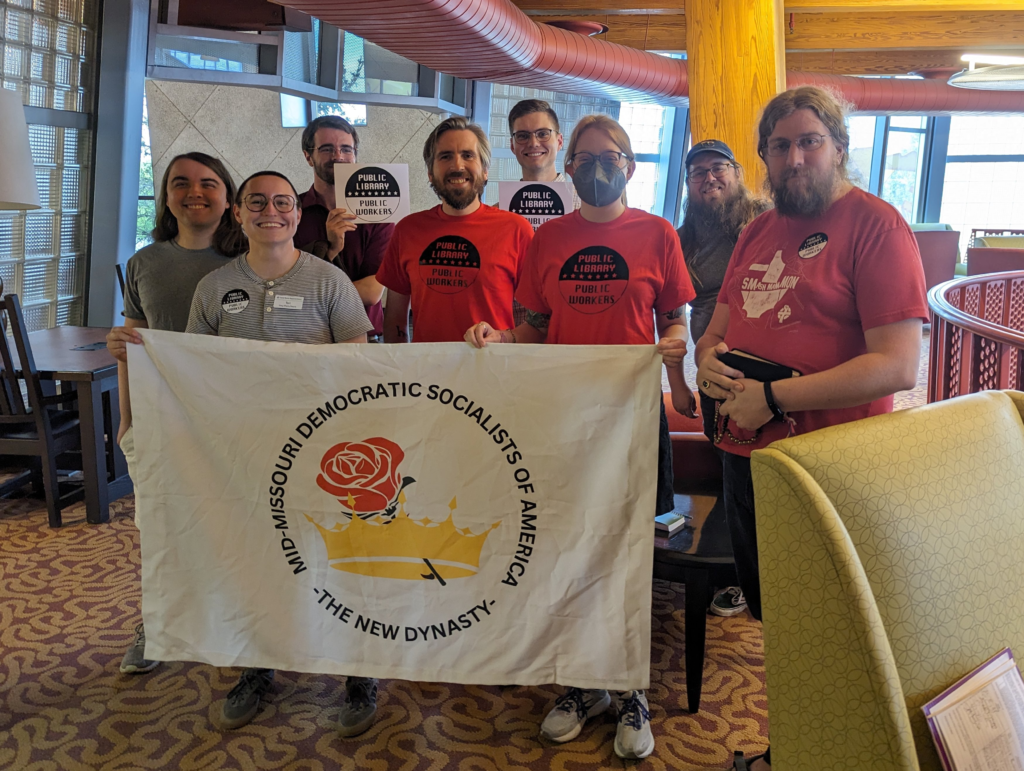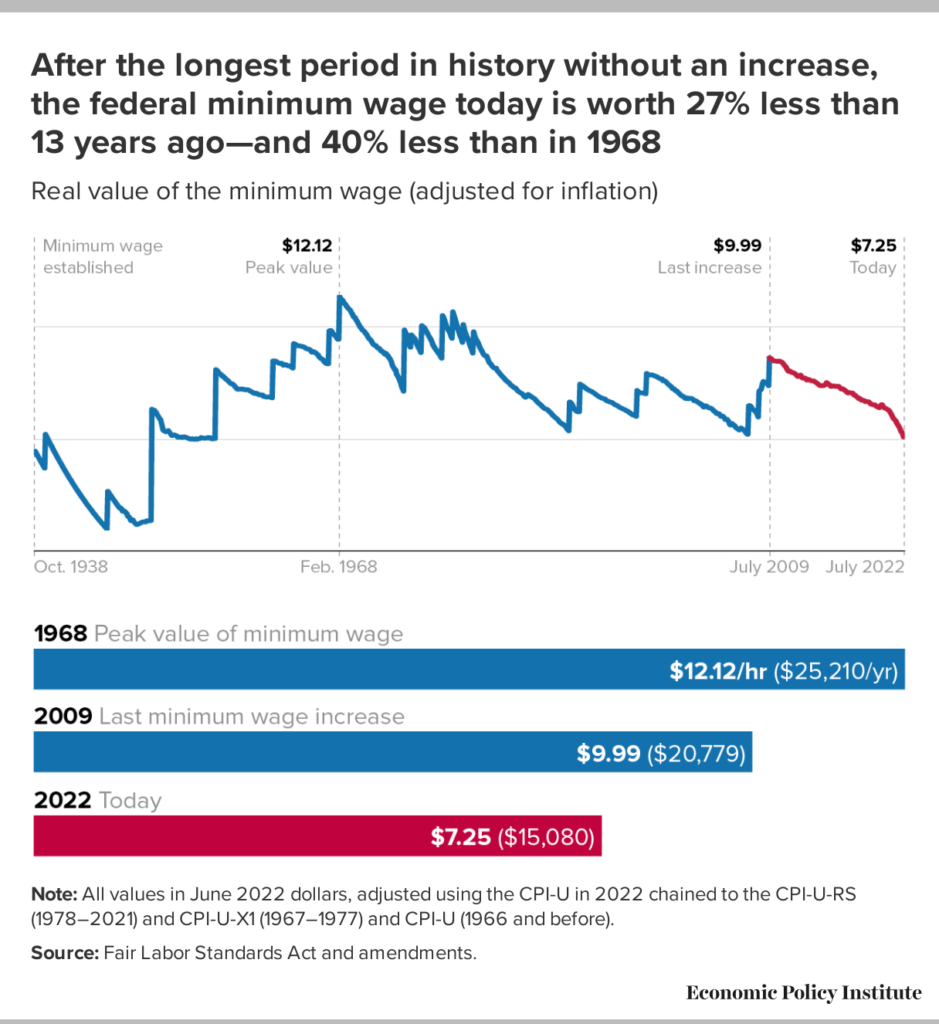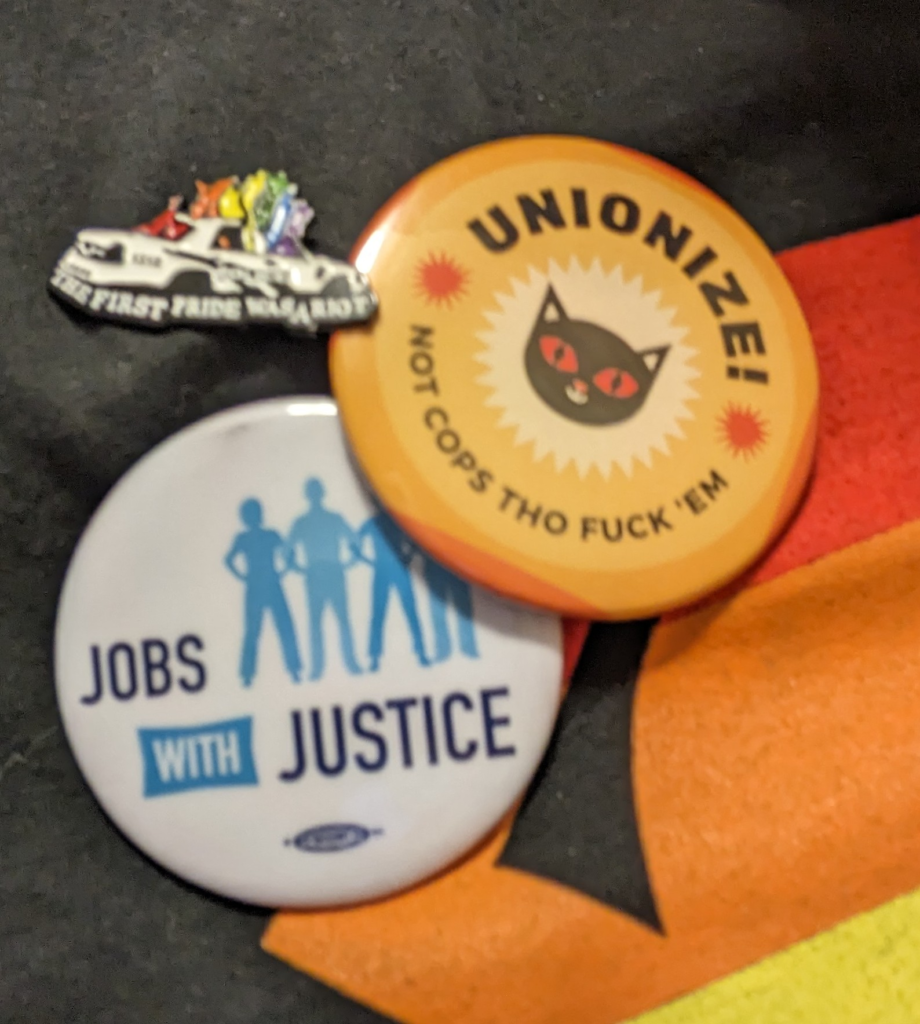Yesterday, Mid-Missouri DSA members, along with others from across the Columbia community, came out for the Daniel Boone Regional Library Board of Trustees Meeting to show support for the Daniel Boone Regional Library Workers United union during their contract negotiations with management.

We were proud to stand in solidarity once again with the first library workers union in Missouri history. We want to help share their message and their fight, so below we are including the full text of their open letter regarding the present situation in their negotiations with library management:
DBRL Workers United is disappointed in the Library Management’s refusal to make movement on proposals that will best support DBRL staff and patrons.
DBRL Workers United is disappointed in the Library Management’s refusal to make movement on proposals that will best support DBRL staff and patrons.
Management insists on “reserving the management right” to replace and fire Daniel Boone Regional Library workers and the services we provide with private contractors at any time. Management claims to care about staff, but we do not see that reflected in these proposals that aim to limit the power of our Union. This is union busting and unacceptable. Public libraries should be staffed by public employees.
Management rights and respecting workers don’t have to be mutually exclusive. While we have proposed policies that protect staff while still providing consistent service for patrons in inclement weather, Management insists on maintaining the right to force us to continue working outside in extreme weather conditions. We have proposed language limiting sub-contracting to ensure that library services continue to be provided by public employees, but Management disagrees and fails to value the relationships we have built through supporting our community.
We have come to the table over the last ten months with the intent to make the Daniel Boone Regional Library the best library in Mid-Missouri. We will continue to invite Management to work with us and take the necessary steps required to make this shared goal our reality.
If you would like to tell the library board and management that you stand with these essential workers, you can contact them here.
Solidarity forever with the workers of DBRL Workers United!



